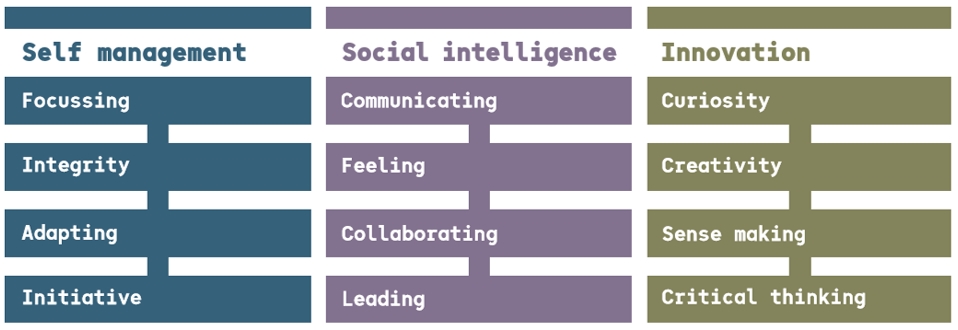
I learned a new word today; “quaranteenager” which is essentially a person coming of age during the pandemic. Home-schooled, missing out on dating, beer and every other rite of social passage, including, in what is an unprecedented situation, the end of year Higher and National exams
Exams.
Anyone else still have nightmares about sitting in an exam hall, trying to remember any of the Higher Physics curriculum? I did, for all the time I was at Inverness College UHI, where I taught (Chemistry mainly) and ran the Highers programme for some years. It was both brilliant, and a nightmare.
Brilliant, because our students got to tailor their own learning programmes. They could pick from a range of subjects and levels that suited what they wanted to do, gain a nationally recognised qualification and use nationally derived resources and learning materials (we dream of this in the land-based sector).
But it was also a nightmare. Not just because of the three-dimensional Sudoku puzzle that trying to timetable this programme presented (and which I rather enjoyed), but because of the exams.
Every year, students would leave just before the exams took place, either in a panic about the final assessment, or because they thought they wouldn’t pass so “what was the point”. These were often very talented students who ended up walking away from education, feeling they weren’t good enough. Or, they would get as far as the exam, having done well until that point, then would have one bad day and fail. Essentially making the entirety of the previous year ‘void’. This happened in the school system too, with students coming to college to re-sit Highers they didn’t pass at school and causing the programme to grow until it became many times its original size.
Every year, we would tell the students not to fear the exams. That they weren’t the ‘be all and end all’. Every year the teaching team would tell their students about the importance of the ongoing course work, the assignments, the progress they had made. The importance of the UCAS reference and their CV, on gaining volunteering or other extracurricular experience…and every year the students would focus on the exams.
It is natural I suppose. Exams were the norm for me, the norm for most parents and it is how colleges and universities set their entrance criteria. And there needs to be ‘something’ to help measure whether an applicant will be able to complete the next level of study. But this is a flawed system, only really showing whether the student will be able to undertake the next level of exams.
Exams provide a grade based on a few hours of activity. They completely devalue the skills the student has developed during the entirety of their education, making them a mere means to an end. They don’t assess abilities or prepare students for work. All they do is provide a snapshot of the knowledge an individual has been able to memorise and can regurgitate in 2 or 3 hours on a particular day. Can you imagine a workplace that has evolved from the school exam system? I can…
It is open plan, and hot desking is the norm. You share this office with about 30 other people, most of whom you have known all your life. You know everything about them, and they know all about you, so pretty much every embarrassing thing you have ever done is common knowledge. But you can’t leave.
Due to the diversity of the work you must do, there is a new boss every hour, who is only your boss for a few hours during the week. However, your boss has their own office, and so you have to move every hour to a different office to do different work.
In order to remain working for that boss, you need to sit an exam at the end of each year. Despite using the computer every day, your exam is written in pen and consists of a series of questions designed to determine only what you know about the area of work. You cannot use your phone. You can include some examples of the work you do, but how well you have actually done the job over the past year is not a measure of your success.
If you don’t pass the exams (normally 4–6 of them), you can’t continue in that workstream. You either have to repeat exactly the same work again for another year, or join another workstream..
Not sounding like the kind of place you want to work? Me neither. So, if not to prepare our young people for work, what are the exams actually for?
Before the internet, the ability to retain and apply information by rote was, understandably, seen as necessary. The examination system was primarily designed to assess a person’s ability to retain information. Today, this "knowledge" is just a click away. People use the internet every day, it is not a fad, it is not going away. Yet the examination system acts like it isn’t there. How do we bring it in from the cold?
Certainly, one thing the current pandemic has shown us that there is a wealth of information ‘out there’ and that unfortunately a significant proportion of it is — at best — nonsense, and at worst, dangerous misinformation . This applies to almost every topic or sector of course, and hence the classroom of the future surely needs to assess, at least in part, how well students discriminate between good and bad information.
However, if we do keep exams, and bring the internet into the exam hall, it is also clear that any exams would have to be written differently. They would have to include new, open and challenging questions which would require students to navigate the internet (like they would in real life) and identify different perspectives, emerging trends and breaking research.
Highers are better than they used to be of course, and it could be argued that the ‘assignment’ aspect of the revised Higher, a key component of most national courses, goes some way to assessing these skills. However, if we take Higher Chemistry as an example, the assignment still only comprises 20% of the final mark awarded to the candidate. The exam makes up the rest. It is recommended that only 8 hours (in total) are allocated to the assignment, with the remaining 152 notional hours hence spent completing some lab work, but mostly preparing for the final exam. This comprises just 2 hours and 50 minutes of questions. This must be rebalanced.
Curriculum for Excellence is changing the educational experience for many, and the relatively new Foundation Apprenticeships are providing a much broader and more exciting educational experience, but yet the exams remain, and when even the headmaster of Eton describes the system of exams as ‘outdated and archaic ’, it is surely time for a change. The challenges our young people will face in their lives, careers and relationships will not be overcome through their ability to write an essay, or complete a multiple choice test in complete silence for two hours.
Success in the ‘real world’ requires them to be able to work in a team and independently. They need to be effective members of their community, with good communication and numeracy skills. These are all things that are better developed and assessed outside of the exam room. They are in fact things that are often developed in the workplace and assessed in SVQs, the vocational qualifications that sit within modern apprenticeships.
They have been defined and described in various ways, including meta-skills or key skills, but I particularly like the definition created by SDS in partnership with the Centre for Work-based learning : Skills 4.0.
These include:
- Self-management: Manage the now
- Social intelligence: Connect with the world
- Innovation: Create our own change
Don’t they sound like the skills we need nowadays? Particularly during this time of great change, wouldn’t it be great if these skills were embedded within our core curriculum?
The result of education should be the ability to ask the right questions. To work collaboratively, and to engage in effective dialogue which helps students to understand alternative viewpoints and apply their knowledge for the benefit of others as well themselves. By knowing themselves better, they will be more able to decide what they want from their future. What they want to do, and how they want to do it.
Let’s hope that if any good comes out of this current situation, it is that we drastically rethink what success looks like for our young people. That we break our addiction to exams and the associated ‘mark’ that they effectively stamp on every one of our young people.
So perhaps this is an opportunity. To rethink what success looks like after a year of hard work and study. Though of course at the moment it might not feel like that for many pupils and students, or their worried families. They face an uncertain future, and it is hard to know how to plan or prepare.
SQA have been asked by the Deputy First Minister to develop an alternative certification model for the exams this year. That work is ongoing, and you can get updates from them here.
Rest assured, there is a wealth of options and opportunities open to school leavers, far more than when I was (attempting) to pass my Higher Physics.
SDS has a range of resources that can help individuals find their best ‘next step’. For anyone considering a career in the land-based or aquaculture sectors, Lantra Scotland is continuing to provide information and support but in a new way and we will do our best to answer any questions you might have (unless they are about physics).
